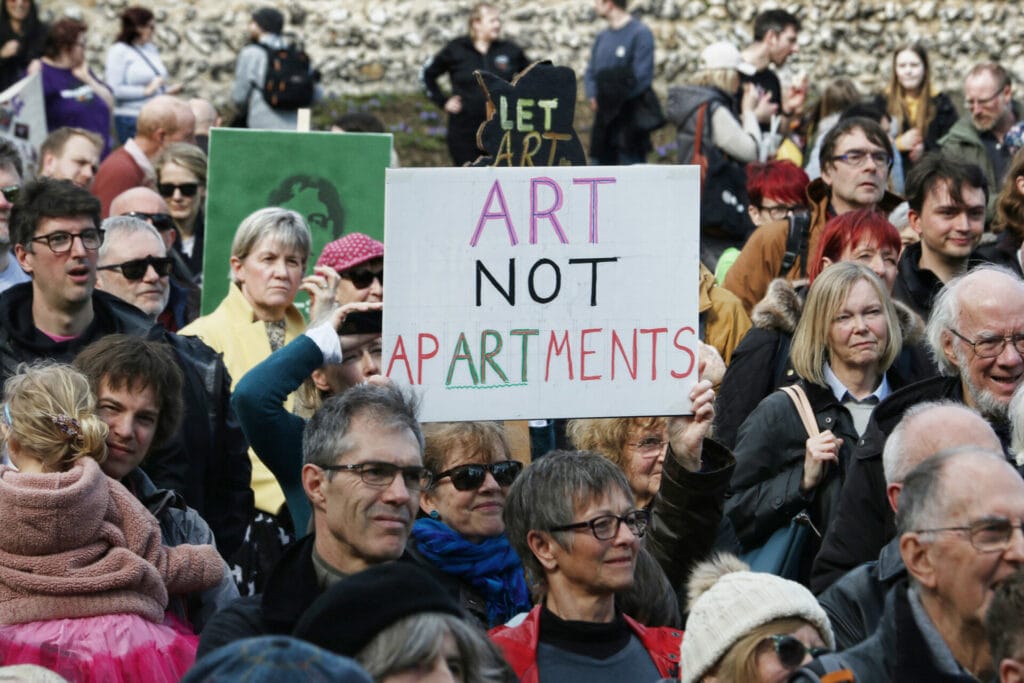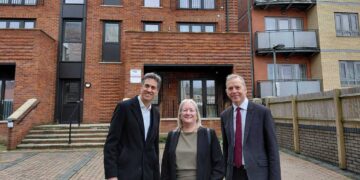TEN YEARS after the closure of Reading Gaol was announced, the fate of the site is no clearer despite protests, plans, and proposals.
HM Prison Reading, known as Reading Gaol, put an end to more than 170 years of housing inmates when it closed in January 2014.
Some of its most notable inmates included celebrated writer Oscar Wilde, who was imprisoned for ‘gross indecency’ due to being gay, and boxer Anthony Joshua, who was placed on remand there in 2009.
Just months after it was announced it would be taken out of action, the last inmate left the site in November 2013.
In the ten years since, the site has been the subject of fierce debate about how the buildings should be used, with the site confirmed to be in the process of being sold to an unknown bidder in September.
Now, Mr Rodda is urging the government to reconsider: “I am calling on the Government to rethink its approach after failing to sell Reading Gaol for 10 years.
“To make matters worse, the Government may have wasted about £3 million mothballing the gaol–the lengthy delay and the high cost to the Government show that a new approach is needed.
“I am calling on Ministers to work with me, Reading Borough Council, the local arts community and other community groups to save Reading Gaol and to help turn it into an arts and heritage hub.”
Since the closure, many community groups, politicians, and even celebrities have called for the gaol to be transformed into an arts and cultural venue.
These calls gained further traction after it was chosen as one of the venues for Reading’s Year of Culture programme in 2016.

The venue saw a live experience take place within the gaol, dedicated to one of its most famous inmates, Oscar Wilde, and his work which bears the name of the site, The Ballad of Reading Gaol.
Government ministers have had other designs on the site, however, with then-chancellor George Osborne stating in November 2015 that they planned to sell it to developers.
Campaigns against the sale of the site to developers and advocating for its use for arts and culture continue, garnering cross-party support from Reading’s MPs, Matt Rodda and Sir Alok Sharma, as well as high-profile supporters such as Dame Judi Dench, Stephen Fry, and Gyles Brandreth.
This includes the Save Reading Gaol campaign, which saw support from the Oscar Wilde Society, Sir Kenneth Branagh, Natalie Dormer, and Shazad Latif.
In 2021, street artist Banksy painted a mural, depicting an inmate rappelling down the wall with a typewriter, which was considered to be in support of the site’s cultural use.
He later made a £10 million bid for the site, but it was announced back in the summer that the government had accepted a bid on the site.

After multiple rejections of bids from Reading Borough Council, the site was said to be in the process of being sold to an unknown, private bidder.
Speaking in the House of Commons in September, then-Prisons Minister Damian Hinds said: “The sale of Reading Prison is proceeding and, barring any unexpected complications, completion is expected later this autumn.”
Mr Rodda has met with a number of Prisons Ministers along with Sir Alok Sharma to discuss the future of the site, and in September, Mr Hinds assured that though the sale was still going ahead, he would remain “in touch” on the issue.

In October, Mr Rodda also met with a TV’s Philippa Langley, as well as the Friends of Reading Abbey, for fresh discussion about King Henry I.
It is believed that the ruler is buried near the site of the abbey, either under the car park or walls of the nearby gaol, which used to form part of the high altar of the abbey.
Historian Philippa Langley was responsible for the campaign which led to the successful and high-profile discovery of the resting place of Richard III under a car park in Leicester, back in 2011.
Now Ms Langley is spearheading the research initiative into Reading Abbey, with the project getting underway in earnest in 2016.
A full excavation of the car park is recommended by a Museum of London Archaeology report published in 2019, and was estimated to cost around £55,000.
Ms Langley has begun a crowdfunding project to raise funds for the works.
























